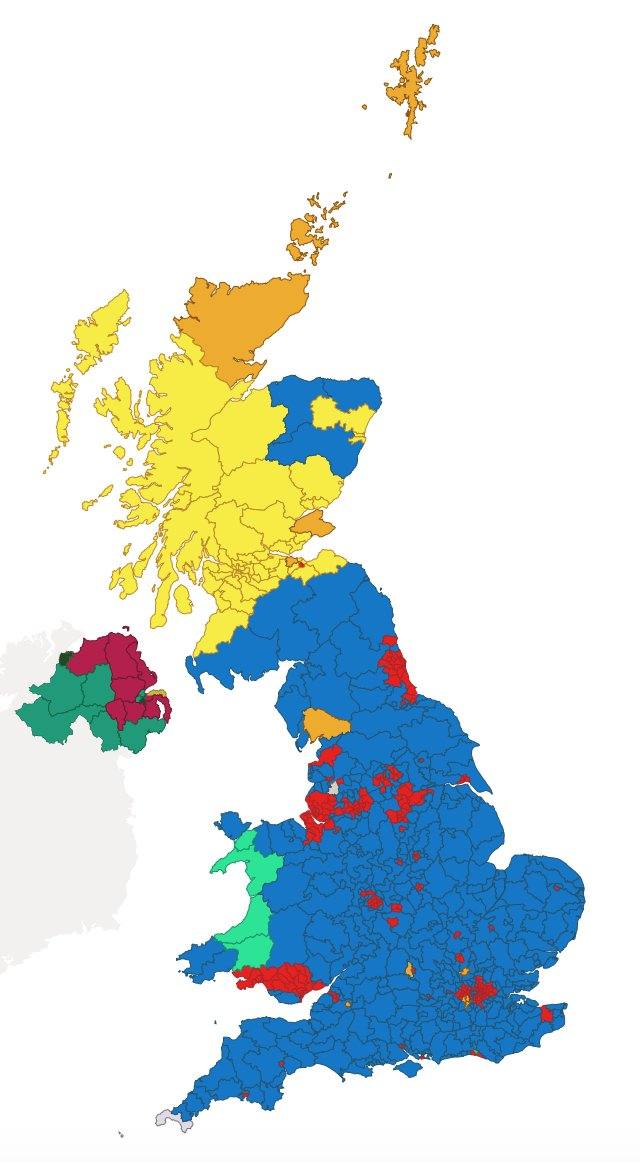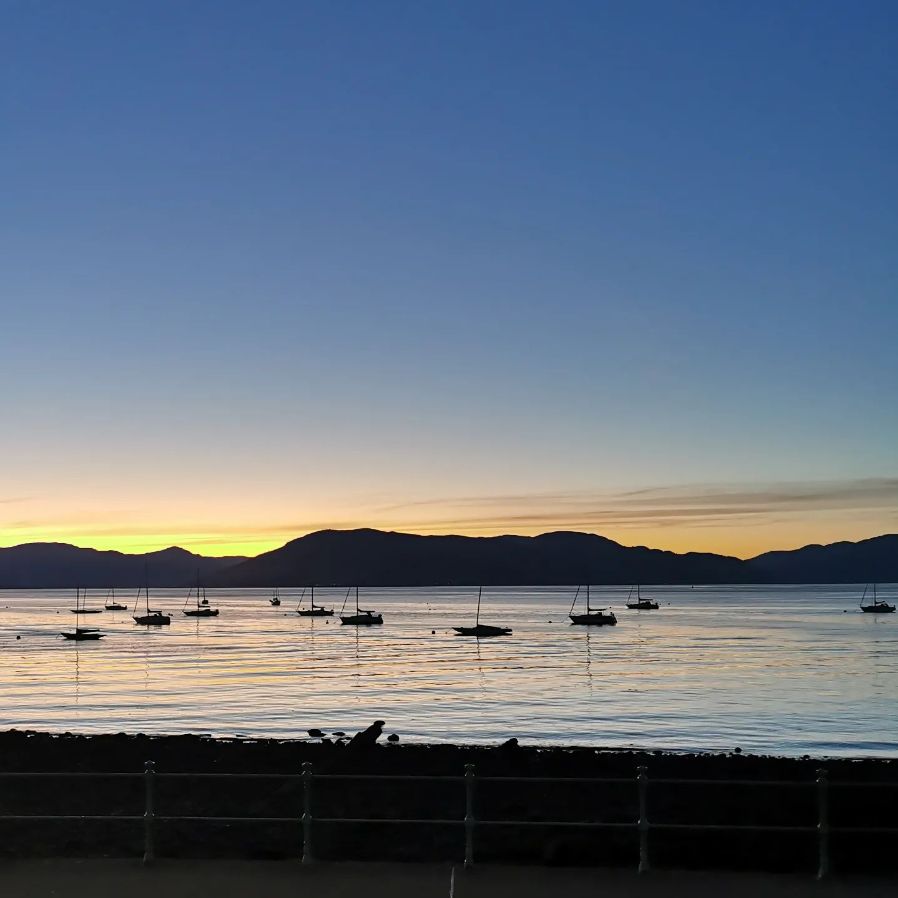
“Though men step into the same rivers, the waters that from time to time flow over them are different”
– Heraclitus, Eusebius of Caesarea: Praeparatio Evangelica. Tr. E.H. Gifford (1903) — Book 15
It has been several months since I’ve written here: a lot has happened this year. I attended Alba’s Annual Conference as a delegate for the Inverclyde LACU. It was an interesting, motivating, and ultimately strange experience: I felt the same sort of optimism & enthusiasm that surged through me when I first joined the SNP all those years ago; the same pride in the compassionate motions for peace, inclusion, and equal opportunities that convinced me that the movement I was part of was right & just. I listened to speeches by Kenny McAskill & Alex Salmond, talked with conveners and old cohorts from the indyref days, saw the familiar sight of raffles and stalls and lanyards. I felt like we’d rewound back to 2014 again.
Yet I could not shake that old Greek mantra, attributed to Heraclitus, altered over time by innumerable philosophers and thinkers, frequently as “No man ever steps in the same river twice, for it’s not the same river and he’s not the same man.” Although it feels like it, Alba is not truly the SNP of old shorn of the post-2014 influx, despite the presence of old radical policies, elected representatives, campaigners, activists. Alba is at once old and new, the infant heir to a hundred-year legacy, filled with the wisdom of years and the fire of youth – with the opportunity to not only go back to the beginning, but start afresh.
For all the positivity I felt, a discomfort was upon me too – we’ve been here before. We’ve stepped in the river once again – how do we change its course?
We will undoubtedly see arguments as to how many seats Alba should contest whenever Westminster dein to inform us of the date, & I’ll leave it to others to propose their ideas. For my part, I see an opportunity to tack a new direction – one that some might find radical, but I find natural given the revolutions and revelations since 2014. I hope the party takes heed.
Read more: The River of Time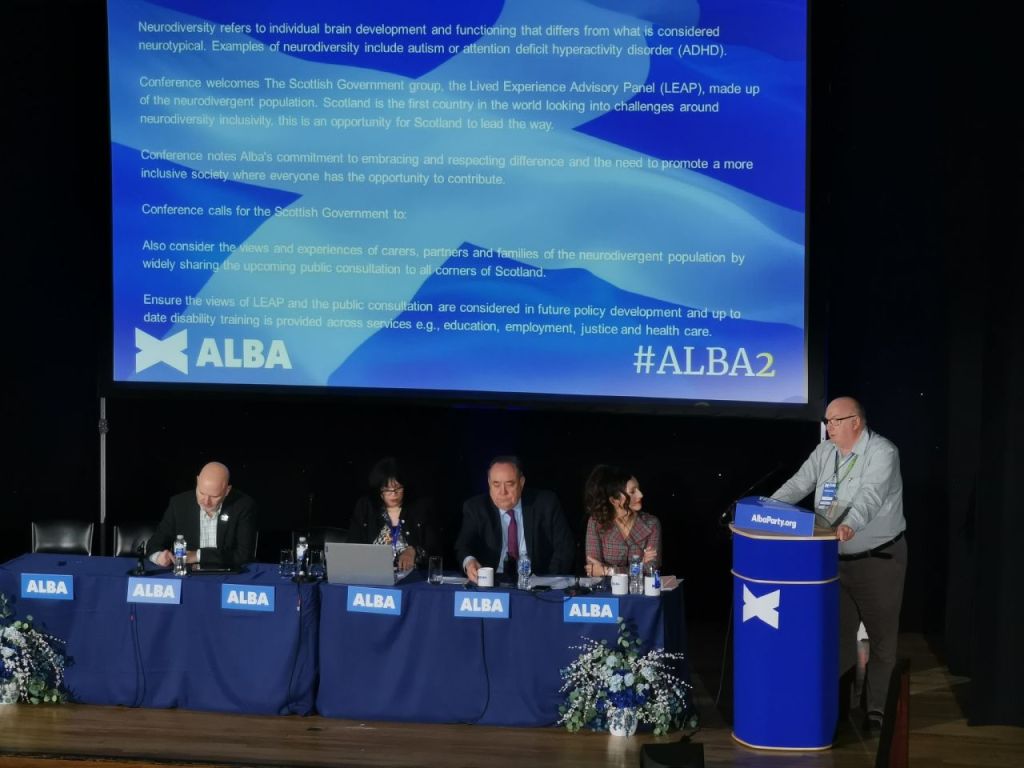
The British Establishment is making a mockery of the democratic process. It could be argued it always did. But even the most ardent defenders of the UK Parliament must be reeling at the sheer contempt displayed by the government & supposed opposition towards the electorate. Barring unforeseen circumstances, it looks like there will be four General Elections this decade, three with the same party ending up in government & the opposition with precious little difference; five Prime Ministers in the same span of time, including the Year of the Three Prime Ministers; promises & declarations made to the electorate that were never intended to be fulfilled; policies & statements made in the electorate’s name despite being overwhelmingly opposed by the people themselves. All this, and the people elected to represent us dance their Masque of the Red Death as loved ones were kept apart for their safety, many never seeing them again.
In that time, the people of Scotland decided we didn’t want to play that game anymore. We were fed up with decades of promises to fight Scotland’s corner that never amounted to anything other than impassioned tub-thumping speeches and scathing newspaper columns, regardless of party. In 2015, we decided to elect a party that – we thought – was not beholden to the UK Establishment, who would not have to toe the line to their Imperial Masters, who could actually fight to make a difference. So the question becomes: who do we send down to the UK Parliament for the next election, whenever that may be? How many will we elect?
My argument, which may be controversial, is that number should be zero.

We are no longer living in the world of 1934, where the foundation of the Scottish National Party finally crystalised a route for the Scottish Independence Movement within the Westminster Parliament – for all we can say about that place, at that time, it was the only route that we could take to express ourselves on a national level. It’s no longer 1967, when a single MP from the Scottish National Party could send shockwaves through the entire British Establishment in the Hamilton by-election. It isn’t even 2015, where we had 56 out of 59 MPs in the UK Parliament.
The period from 2011 to 2017 was the most powerful the Scottish Independence movement has been in its modern history. Six years on, several of those 56 MPs are now members of the Alba Party. They are in Alba because they recognise that the SNP is no longer the avenue through which to take Scotland to independence. They also know that the late, lamented #indyref2 is also not the avenue, because it has been denied to us multiple times over the past decade.
I argue that Westminster is so removed from any true expression of Scottish democracy that it should be taken out of the equation altogether. I distinguish this from an abstentionist policy, as proposed by the Independence for Scotland Party, and Sinn Féin, who only stood candidates for election in the absence of an Irish Parliament of their own, one which the UK Government refused. We’ve had our Scottish Parliament, reconvened – a very deliberate choice of words – by no less than the independentista of Hamilton, Winnie Ewing herself. Since 2007, we’ve had a Scottish Government, as the leader of the Alba party himself ensured we were no mere “Executive” despite the howls of devolutionists.
I think it is only proper, pragmatic, and principled, that we should treat the Scottish Parliament as the ultimate expression of Scottish government and Scottish democracy. We must make a principled stand against Westminster’s suzerainty over the Scottish people – a rule which it has long shown it is unfit to assert.

I won’t argue that independence-supporting MPs were wasting their time for the past hundred years: from Robert Bontine Cunninghame Graham onwards, MPs representing Scots undertook tremendous work in promoting our land & people. It was a necessary step: we had to prove everything that can be done in Westminster had been done in order to demonstrate, once and for all, that the people that rule us will only loosen the leash so far. This culminated with the SNP landslide in 2015, where 56 out of 59 MPs – 95% of Scottish seats representing half of the electorate – were thoroughly, resolutely, irrefutably overruled by a party with a single representative & less than a fifth of the electorate’s support.
Every single proposal put forward by the SNP in the Smith Commission was rejected out of hand. Every single SNP amendment to the Scotland Act 2016 was outvoted. Every attempt by the SNP to meet the UK Government halfway on matters directly affecting Scotland was dismissed.
There will be several prospective Alba members who will be raring to go, to prove their point & fight Scotland’s corner – and I know this, because several already have as part of the SNP. The SNP of that time was very different from the SNP of today, and if we couldn’t achieve our aims – for most of us in Alba were indeed part of that SNP – then what hope would Alba have?
Rutherglen is instructive. It is one of the four constituencies in Scotland which reported a Yes majority in 2014. Rutherglen & Hamilton West voted Margaret Ferrier with a colossal 36.5 swing to the SNP (30,279 & 52.6% on a 69.6% turnout), only to see her lose 2 years later on a minuscule 2.3 point swing back (18,836 & 37%, 63.5% turnout), & regain it another 2 years later with a convincing 7.2 point swing to the SNP (23,775 & 44.2%, 66.5% turnout). These are interestingly comparable to the SNP’s fortunes on a national level – 49.97% on a 71.1% turnout saw a 30.1 point swing to the SNP in 2015; 36.9% on a 66.4% turnout saw a 13.1 point swing away in 2017; finally, 45% on a 6.81% turnout in 2019 saw an 8.1 point swing back to the SNP in 2019.
Now, if your argument is that Margaret Ferrier only won on an SNP ticket – a craven adoption of the “donkey in a red rosette” accusation often levelled at the other party – then it would follow the election of Katy Loudon should broadly reflect the SNP’s fortunes across the country. So what are we to make of a party which saw a cataclysmic 20.4 point swing away from the SNP, a loss of almost 2 thirds of votes (8,399, 27%) which accounted for fewer votes than the winner’s overall majority – even on a pathetic 37.2% turnout where the winner actually lost almost a thousand votes compared to just 2 years previously? And that’s with tactical voting seeing the 3rd party – the official opposition in the Scottish Parliament – shed 85% of its votes (8,054 in 2019 to 1,192 votes in 2023) to benefit the best-placed Unionist.
If the people of Rutherglen & Hamilton West only voted for a candidate because of the yellow rosette, then why didn’t they vote for the yellow rosette this time? Why this profound result of 67% for Unionist candidates in one of the few constituencies in Scotland to vote Yes, despite polls showing support for independence balancing on a knife-edge? Because, as the turnout indicated, the people who want independence are fed up with the UK Government entirely. The scales fell from their eyes in 2014, & their eyes are no more clouded today. As politicians enthusiastically talk about how eager they are to contest new constituencies that the people of Scotland did not consent to change which are gerrymandered against our interests, we have to ask: what are we voting you people in for? I voted for Ronnie Cowan to be the last MP for Inverclyde, not the first MP for “Inverclyde & Renfrewshire West.”
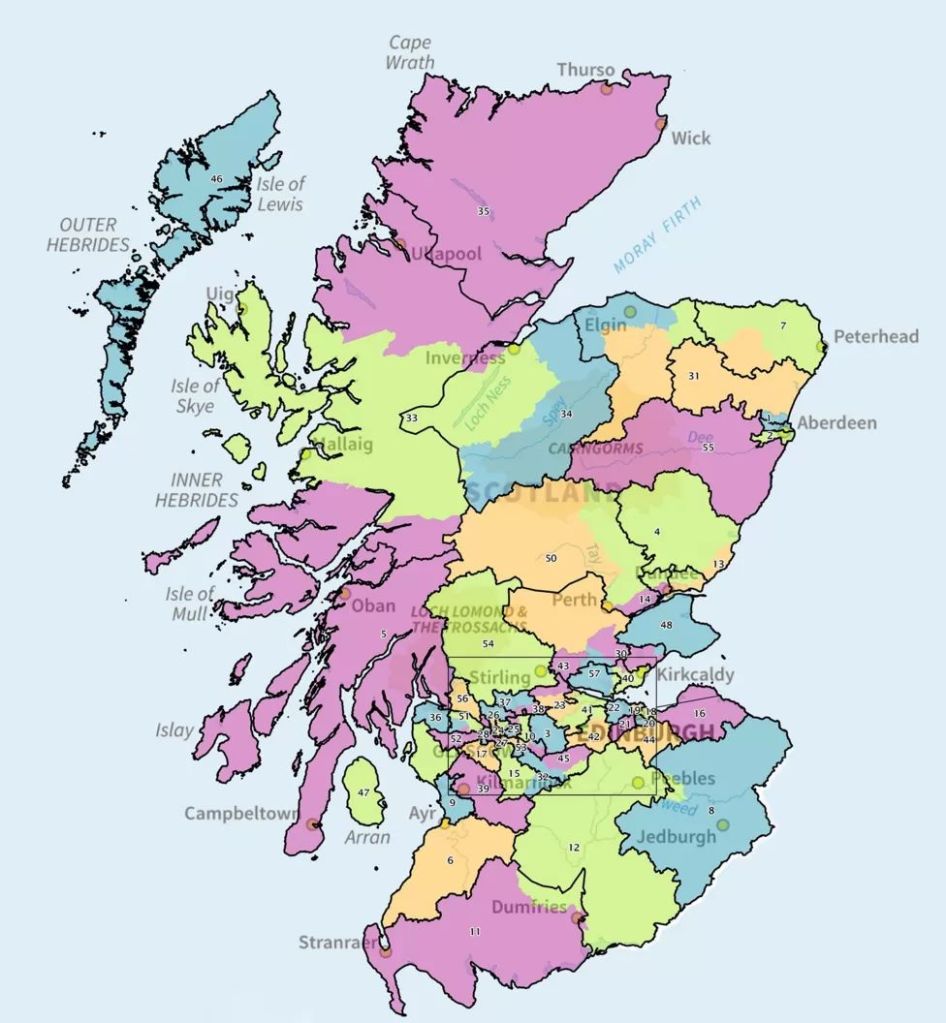
UK Elections in Scotland have historically been lower compared to the rest of the UK for reasons that have been obvious for decades. 2015 saw a sizeable increase in turnout, greater than the snail trail from the nadir of 2001, but failed to maintain that enthusiasm as it became clear that there was no iron in the SNP’s words – first on the Change of Material Circumstances, then on failing to stop Scotland being dragged out of the EU against our will, and finally with the naked contempt & betrayal of people who should have been their greatest allies.
Regardless of our stance on independence, the people of Scotland no longer have faith in Westminster to represent our interests. That lack of trust which was not too long ago directed at the Westminster parties is now turning on those who were directly elected to champion Scotland. It is not voter apathy – it is voter rejection. We should take the hint. Alba are already diverging from the SNP on currency, on our relationship with Europe, on the urgency of independence – we should extend that to our relationship with the UK Parliament: a recognition that it works against, rather than for, the people of Scotland.
But there is another, principled reason that I think Alba should take the bold step to repudiate Westminster altogether.
Members of the House of Commons and the House of Lords take an oath of allegiance to the Crown. This is called swearing in. Members can either swear in using a religious text or take a non-religious, solemn affirmation. They do this before taking their seats in Parliament. This can happen after a general election or by-election.
Swearing in also happens after the death of the Monarch: for members of the House of Lords this is an obligation but for MPs it is optional and not doing so has no effect on them taking their seat or participating in business.
Oaths of allegiance to the Crown are common in British public life. They are similar to a declaration of loyalty to the state.
Members of both Houses of Parliament are required by law to take an oath of allegiance to the Crown.
MPs cannot take their seat, speak in debates, vote or receive a salary until taking the oath or affirmation. They could also be fined £500 and have their seat declared vacant “as if they were dead” if they attempted to do so.
– UK Parliament
Sinn Féin famously do not sit in the UK Parliament because of this requirement: this has not impeded their electability over the years, to the point where they may well overtake the DUP at the next UK election despite never having set foot in Westminster in their hundred-year-plus history. They have already become the largest party in Stormont for the first time in history, proving – as the SNP did from 2007 – that representation at Westminster does not negate the possibility of success at Holyrood. Despite losing the benefits afforded to full MP duties – short money, debates, staff, party political broadcasts – the party grew, because the electorate respect a party that has principles.
Prior to 1999, we had no Parliament, and thus no choice but to stand for Westminster, abstention or otherwise. Our 56 MPs, elected to champion Scotland, had to swear an oath of allegiance not to the people, not even to Scotland, but to an individual – a relic of a medieval system which may have a fraction of the power it had in the past, but is nonetheless of immense symbolic significance. The two Alba MSPs had to make this oath under the SNP, as did every former MP in the party.
But the monarch to whom that allegiance was sworn has died, and with her death, so died Alba’s tenuous support of the monarchy in Scottish public life. The next people voted to Westminster will not be swearing allegiance to Queen Elizabeth, but King Charles – her Heir and Successor, for sure, but nonetheless a very different person & personality – and thus, the very wording of the oath every UK Parliamentarian must affirm will be different for the first time in three quarters of a century. This oath is already an affront, and it sickens my heart knowing so many of Scotland’s representatives have taken it. It is bad enough we swear it in Scotland’s own Parliament, but to do so in the same building that one of our greatest heroes was wrongly sentenced to death?
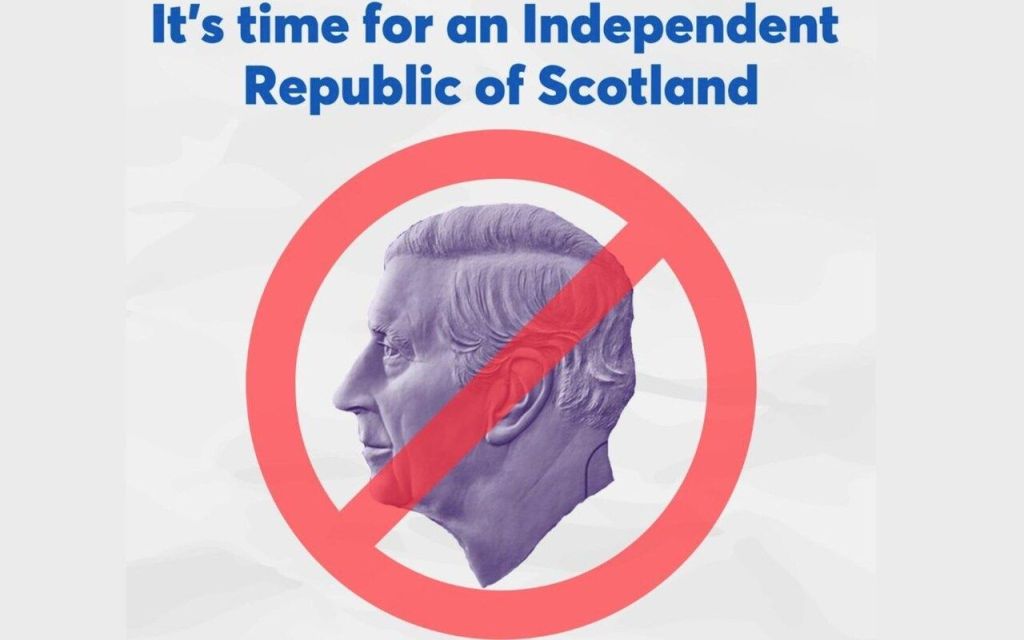
Alba has an opportunity to put their republican money where their mouth is – to reject not only taking a seat at the UK Parliament, but to turn their back entirely. Even if there was no promissory oath to a monarch, the very act of contesting a UK General Election means, necessarily, acknowledging Westminster’s primacy over the Scottish People. Alba have not yet contested a general election – indeed, they already declined to contest Rutherglen & Hamilton West. The moment an MP takes a promissory oath, we lose that principle forever – if we’re going to choose to stand, then there’s no going back from it save through doing what the SNP failed to do. There is an opportunity for Alba to distinguish itself from nearly every other party, to defy Westminster’s dominion over Scotland in the plainest way possible. The game is already rigged against us: why should we play a game we will never win?
This is not running from a fight – it is choosing our battles. It isn’t about winning elections for winning’s sake – that’s for other parties who aren’t interested in advancing the cause, only to fatten their pensions and savings. What is the point of winning elections if we can’t change anything without our larger neighbour’s blessing? What would the people of Scotland gain, materially, from having 57 Alba MPs as opposed to SNP or any other party representatives? The SNP have won every election on every level of governance in Scotland since 2015, and what do we have to show for it? We used to have a fourth level of governance with the European Parliament, until it was taken from us against our consent – as a direct consequence, it’s time we withdrew our consent from the UK Parliament over us.
The people are watching us. If they know anything about Alba, they will know it is largely composed of dispossessed SNP members, & the top of the party composed of former SNP elected representatives. They will quite rightly point out, “what will you do differently compared to what many of you already did in 2015?” They will correctly mention that “we’ve heard all these promises before, when you were in the other party – why should we believe Alba will be any different?” They will accurately glance at all the MPs who went to Westminster to settle up, only to find they’ve settled down, their wealth & influence having expanded while Scotland’s cause remains at a standstill.
Others are watching, too: other independent nations, baffled at our reluctance to grasp a thistle through an open door, almost willing us to rejoin the world on our own terms. How are we to foster any sort of respect, sympathy, or acknowledgement on a world stage if we just let Westminster constantly traduce, demean, belittle, dismiss, and berate our representatives? When the SNP walked out of Parliament in 2018, that should have been the last time we saw any of them in those cloistered corridors, never to return. Yet return they did, to be scorned & ridiculed & debased for another five years, the Westminster group leader’s protestations that “Scotland would not be dragged out of the European Union against our will” only so much hot air from a bloviating buffoon. Some nations fought wars for their freedom, lost millions of lives in their struggle, went through Hell & back for international recognition: our representatives can’t even pull themselves from the Terrace Cafeteria long enough for a principled walk-out. How are we meant to be an independent nation if we don’t act like it?
Perhaps it isn’t a question of who we send to represent us: perhaps it is a question of where we want to send them.

Which is, of course, not to say we’ll be “sitting out” this or any future Westminster election – far from it, it would provide an excellent opportunity to run a campaign against it. For to long, the framing has been “who should represent Scots at Westminster,” an acknowledgement that even the road to independence must march through those halls – yet surely if we wish to be free of Westminster rule, we must demonstrate through practise? Reject the terms of the election: acknowledge that Scotland can only influence the UK, even Scotland itself, if enough of England allows it; spoil the ballots for a rigged system to demonstrate the contempt we show for a system which treats us so. We would be sacrificing a great deal, but principles require these sorts of sacrifices, especially with our real goal of the next Scottish elections on the not-too-distant horizon.
We sent down 56 SNP MPs, including the future leader, chair, and depute general secretary of the Alba Party, among others. They did everything in their power to hold Westminster to account – but we have pushed the envelope as far as it will go. Just as we stopped pushing for indyref2, recognising that the circumstances of 2011 will not be replicated with support for independence in ascendancy; just as we stopped trying to change the SNP from within, and started a new party; just as we should acknowledge that constantly asking the SNP to join Scotland United after years of abuse starts to look pathetic rather than generous.
Alba is not, and cannot be, a replacement for the SNP, because the circumstances which led to the SNP’s dominion over the past two decades are not the circumstances we have now. We cannot repeat the SNP’s success, for we cannot repeat the circumstances. We are not stepping into the same river twice, for it is not the same water, and we are not the same people. The people of Scotland want change, Westminster wants more of the same. What greater change could there be in the way we approach UK General Elections, than to reject the entire wretched edifice entirely?
Let us choose change.
Let us choose Scotland.
Who are lost in the ocean of space
Show them the way to reverse their decline
Guide them back on a river of time


